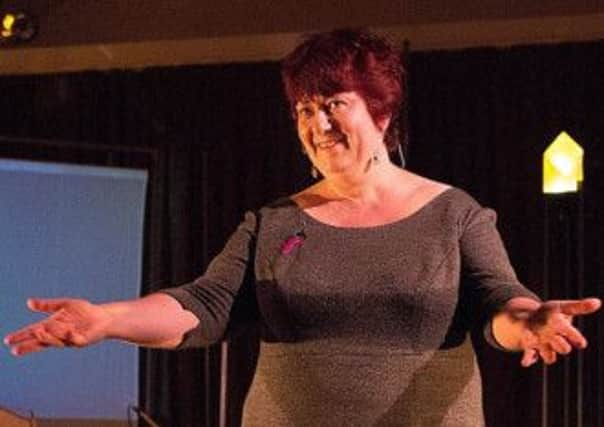Fiona J MacKenzie in touring show Little Bird Blown Off Course


Even leaving aside large-scale shows like David Greig’s Dunsinane, now on a stately progress from Inverness to Edinburgh via Aberdeen and Glasgow, there are, by my reckoning, at least 11 small or medium-scale Scottish-made professional productions set to make their way around Scotland’s stages between now and the end of October.
Some of them are tours of well-established shows, heading out to a wider audience; others, though, are brand new, and range from the National Theatre of Scotland’s Little Bird Blown Off Course – which finishes its Blas Festival tour on Canna tonight – to Mull Theatre’s new production of the modern Canadian classic Drawer Boy, which starts a 15-date Highland tour this weekend.
Advertisement
Hide AdYet for reasons that remain slightly mysterious, none of this touring activity seems to make much impact on the world of Scottish theatre, which remains convinced that the whole business of small-scale touring is in decline. When the consultant Christine Hamilton conducted her survey of Scottish theatre for Creative Scotland in 2012, complaints about the amount and quality of touring theatre were rife, among both artists and venue managers. And the sense of decline is so strong that it has spawned a whole show of its own, Martin McCardie’s 1980s-nostalgia play God Bless Liz Lochhead, which played to enthusiastic audiences at the Assembly Rooms during this year’s Fringe.
So what is the real story? The answer seems to be that despite a high, and sometimes intense, level of activity, the current small-scale touring scene in Scotland lacks a heart and soul, and – with a few obvious exceptions – a living sense of connection with the communities to which it tours.
In the years between 1980 and 2005, all of Scotland’s famous radical touring companies – 7:84 Scotland, Wildcat and Borderline – lost their year-round funding from the Scottish Arts Council.
Then last year, the new Creative Scotland famously announced that all non-building-based theatre companies were to be moved immediately to project-by-project funding; this was a hugely controversial decision, delayed but never reversed, that finally removed any sense that Scotland has a body of year-round funded companies dedicated to touring as a matter of principle, and supported as long-term organisations with the mission to build relationships with local venues, and to develop work with that relationship in mind.
It’s a subtle distinction, perhaps; and many companies – including Michael Emans’s dedicated Rapture Theatre, the National Theatre of Scotland in its small-scale touring work, and major groups creating work for children – still seek to buck the trend.
Yet the overall effect of what now looks like a series of insensitive and hostile funding decisions has been to weaken the impact of a sector that was once at the creative heart of Scottish theatre, to diminish its status, and to fragment its relationship with the audience it serves.
Advertisement
Hide AdAs for the politics – well, there’s no doubt that the explicit radical commitment of companies like 7:84 and Wildcat to create shows about the lives and struggles of the people around them added a special dimension to their work, and attracted new audiences to an art form they might never otherwise have embraced.
What matters, though, is that theatre artists who really want to tour should be supported in doing so, with the kind of modest but stable long-term funding that gives them the power and freedom to create, to rethink, and to develop their work, in partnership with their audiences. With that support, anything is possible; and without it, the best touring efforts of some of Scotland’s finest artists are likely to seem piecemeal, fragmented, and somehow less than the sum of their parts.
JOYCE MCMILLAN